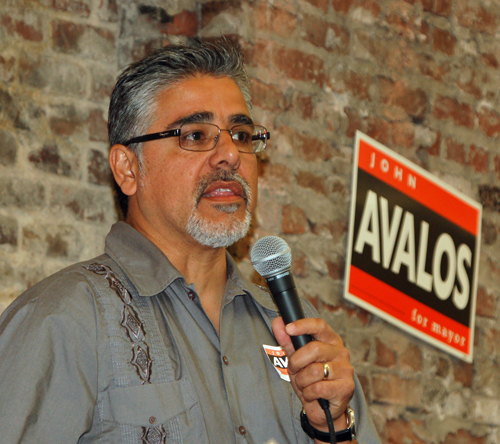
It's almost gospel among political scientists that national political campaigns matter far less than the media and their participants believe. Voters' sentiments are grounded in perceptions of their immediate economic conditions; their longstanding political allegiances to one party or another are largely unvarying despite all the sound bites, ads, and hoopla. You can pretty much count on people to vote as they have in the past, only shaken in their inclinations if they think something is going very wrong. Here's Jonathan Bernstein with a measured discussion of how presidential campaigns do and do not make a difference.
Since I'm by vocation a campaigner who organizes in political contests, I'm supposed to be skeptical of the assertion that campaigns don't matter, but I'm not. I see lots of activity that I think is just waste. Much direct mail, many phone banks, and all emails and robocalls fall in that category. This stuff mostly just makes money for the purveyors. You don't have to take my word for it; the research has been done.
On the other hand, I'm certain that good campaigns -- particularly at the local and state levels -- unleash energy and creativity for citizenship, build networks of people that can endure past the momentary effort, and sometimes even elect better people than we'd get if we just sat back and ignored the fray.
All this is just introduction to some contrarian views I wanted to share here while I'm out today doing Get Out The Vote work for John Avalos's campaign for mayor of San Francisco. Gil Troy, an historian of presidential politics, has a nice rundown in the NYT of why campaigns do matter. Some excerpts:
The whole thing is worth reading.Presidential campaigns are nasty, long and expensive because they should be. Many aspects of campaigns that Americans hate reflect democratic ideals we love. The presidential campaign’s length and fury are proportional to the electorate’s size and the presidency’s importance. A new president should undergo a rigorous, countrywide, marathon job interview. Citizens need time to scrutinize the candidates. ...
…A campaign is the defining democratic exercise for a country founded on the consent of the governed. Since the Jacksonian Democratic revolution against elitism in the 1820s, each revolution democratizing American life further popularized the campaign. Democracy trumped dignity; mass politics required mass appeals that frequently became protracted, vulgar brawls….
Like automotive crash tests, nasty campaigns determine a potential president’s strength and durability. …
Campaign budgets reflect the time candidates require to capture attention across America’s continental expanse. Candidates compete against the din of modern life, not just against each other. Considering that Procter & Gamble spent $8.7 billion in 2008 peddling detergents and razors, spending $4.3 billion for the 2008 campaign appears a reasonable price to pay for democracy.
The pic is John Avalos at this kickoff.
No comments:
Post a Comment